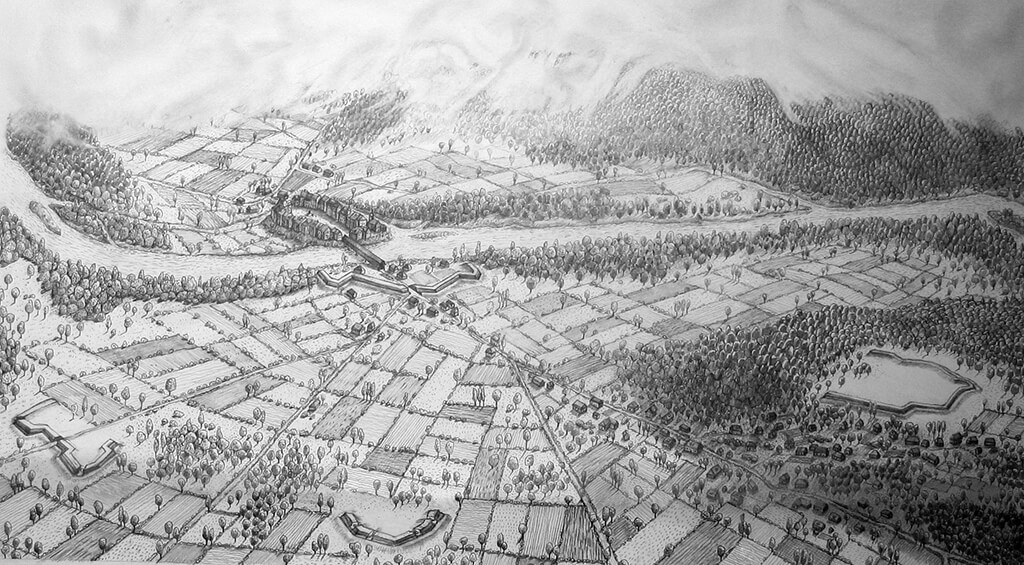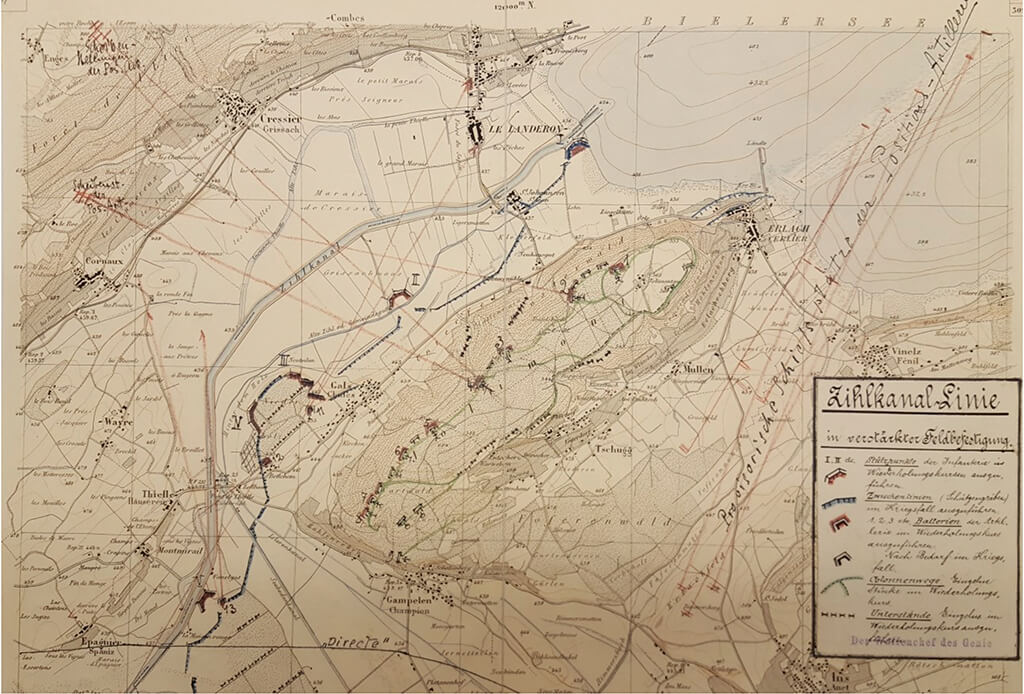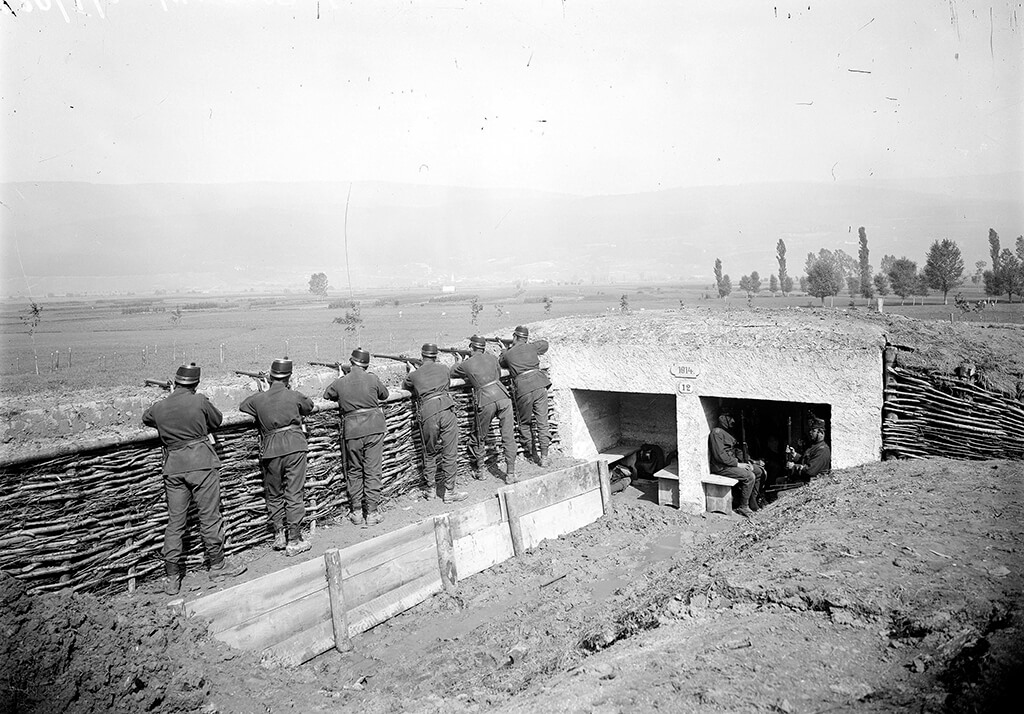Defending the country in a marshland: The fortifications of Aarberg and Murten, 1815-1918

Up to the mid-19th century, the so-called Grosses Moos was flooded year-by-year due to a large body of water flowing from the Aare River and its tributaries into this shallow part of the country. For the city-republic of Bern this meant that the main access to its territory from the west could rather easily be defended at the country town of Aarberg, where many roads and lines of communication met.
In the second half of the 19th century, however, due to the Jura lakes melioration project the Aare River was diverted into Lake Biel, and besides this lake, also Lake Neuchâtel and Lake Murten were lowered by more than 2 metres. In this way, not only the whole ecosystem changed, but the defensive positions in Aarberg lost much of their strength. The line from Mont Vully along the Zihl Canal and the Jolimont became a more forward position that was fortified in the context of the defensive operations of the Swiss Army during the First World War.
The excursion by coach will lead us at first to the country town of Aarberg, where we will visit the old city as well as the fortifications built in the early 19th century. We will thus be able to see, how the military of the time used their knowledge of geography and ecology to set up positions to defend their country against an attack from the west. We will also see, how the changes of the second half of the 19th century including the Jura lakes melioration project changed the situation. We will the proceed to Mont Vully, which will give us a perfect view over the whole area and which still contains remnants from Swiss positions built during the First World War. After a lunch break in Murten we will move to the Jolimont and the Zihl Kanal to have a look at how the Swiss Army planned to defend itself against a possible attack of French forces through the Jura during the First World War. In the course of our travel we will also have the possibility to see where and how visions existed for a city of world peace in this region.
Duration:
26 August 2023, 08:00-18:00
Price:
Excursion, standard rate (no reductions for SBB Halbtax, SBB GA and Swiss Travel Pass holders): 30 CHF
Add a vegetarian lunch package: 10 CHF
Mobility:
Good shoes recommended for the short walking tours, not suitable for wheelchairs, walkers and prams.
Contact:
daniel.segesser@unibe.ch


